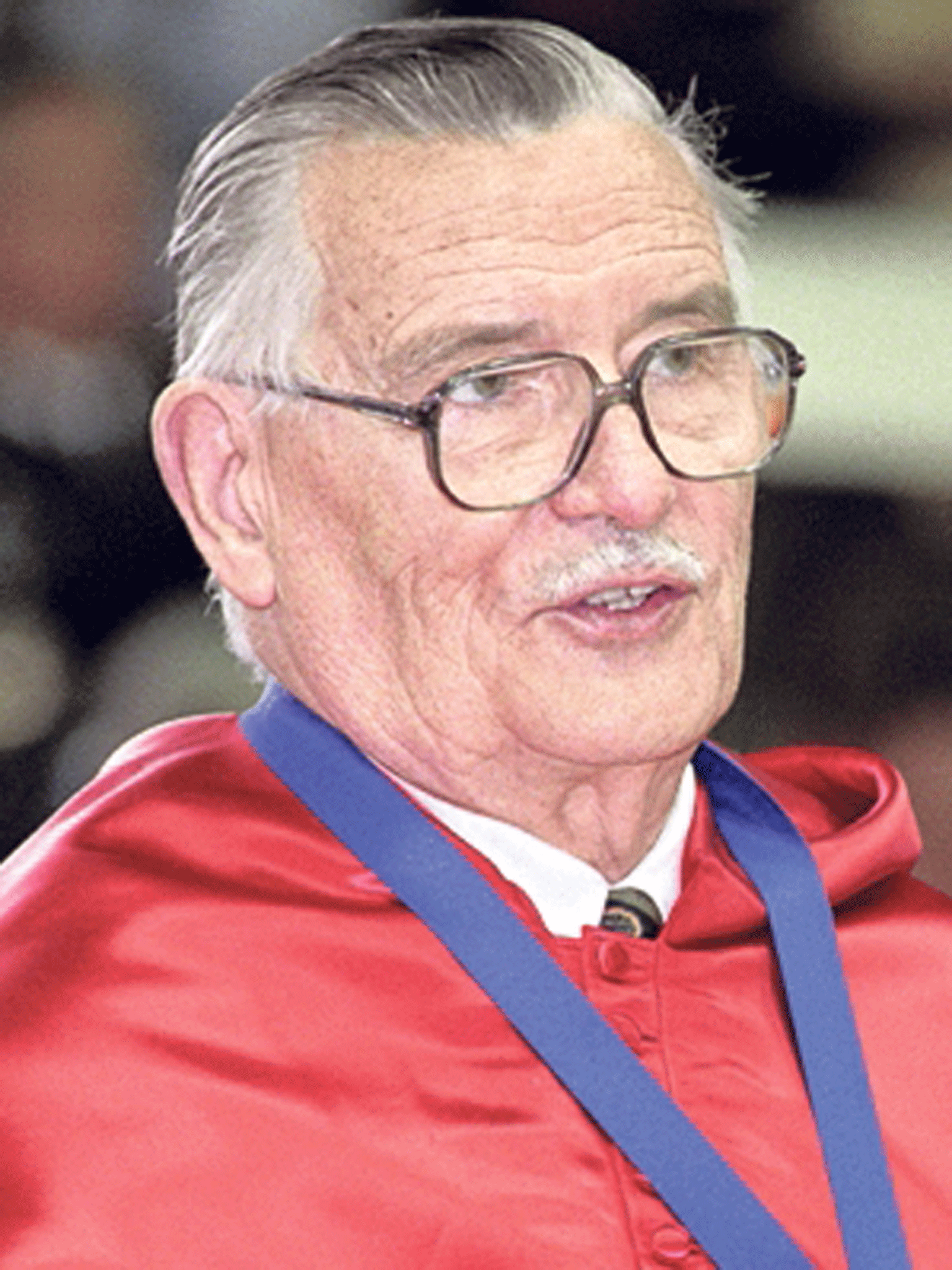Professor James M Buchanan: Economist who won the Nobel Prize

James M Buchanan, who died on 9 January at the age of 93, was an American economist who won the 1986 Nobel Prize for applying the principles of economic self-interest to understand why politicians do what they do. He was a pioneer in the field known as public-choice theory, which views government decisions through the personal interests of the bureaucrats and elected leaders who want to advance in their careers and win campaigns.
James McGill Buchanan was born in 1919 in Murfreesboro, Tennessee. During the Second World War he served in the US Navy on the staff of Admiral Chester Nimitz, commander of the Pacific fleet. He earned his PhD from the University of Chicago in 1948.
He taught at the University of Tennessee and Florida State University. At the University of Virginia, where he taught from 1956-68, he led the economics department and helped found the Thomas Jefferson Center for Studies in Political Economy, the research institute through which he continued his work on public-choice theory. His best-known book, The Calculus of Consent, was published in 1962. He collaborated on it with his research institute co-founder, Gordon Tullock.
The Royal Swedish Academy awarded Buchanan the Nobel Prize in economics "for his development of the contractual and constitutional bases for the theory of economic and political decision-making." He summarised public choice as "politics without romance" and said it helps explain why established bureaucracies "tend to grow apparently without limit," why pork-barrel politics endure and why the tax system is defined by "the increasing number of special credits, exemptions and loopholes." At the time he received the award, his ideas were finding a receptive audience within the Reagan administration.
"Buchanan's contribution is that he has transferred the concept of gain derived from mutual exchange between individuals to the realm of political decision-making," the Nobel committee wrote. "According to Buchanan, it is often futile to advise politicians or influence the outcome of specific issues. In a given system of rules, the outcome is to a large extent determined by established political constellations."
As Buchanan put it in Liberty, Market and the State (1986), politics is "a process within which individuals, with separate and potentially differing interests and values, interact for the purpose of securing individually valued benefits of cooperative effort." The choice of Buchanan for the Nobel drew some criticism, in part because his area of study was a step away from traditional economics in the direction of political science.
Join our commenting forum
Join thought-provoking conversations, follow other Independent readers and see their replies
Comments
Bookmark popover
Removed from bookmarks